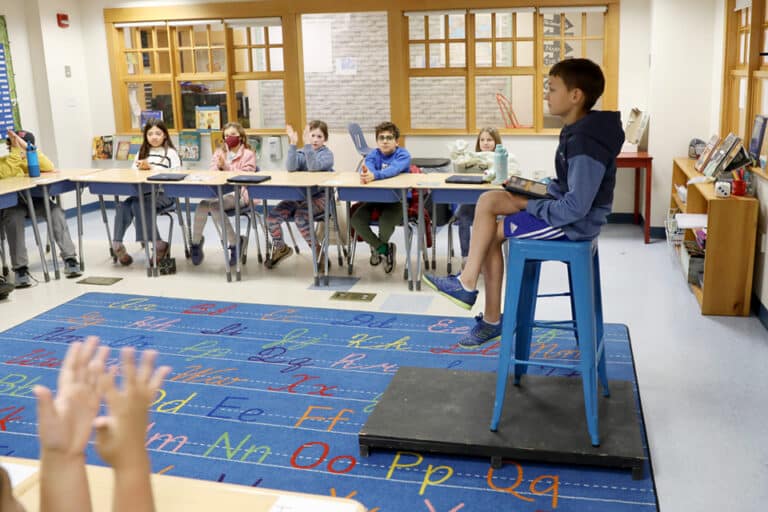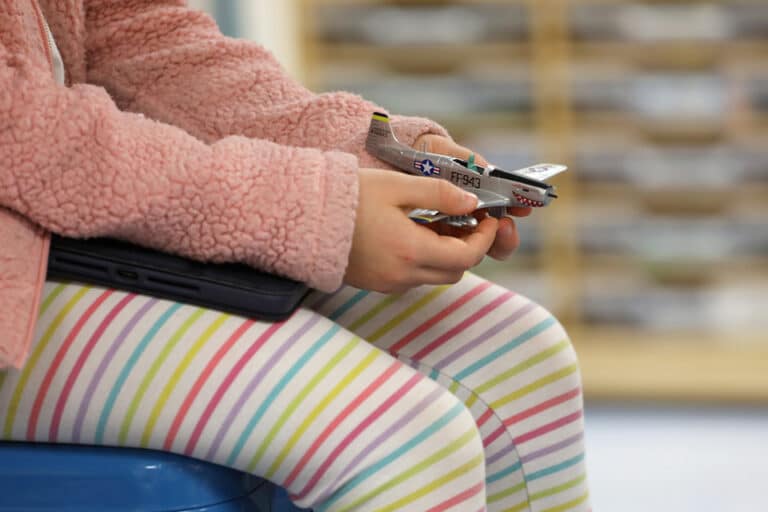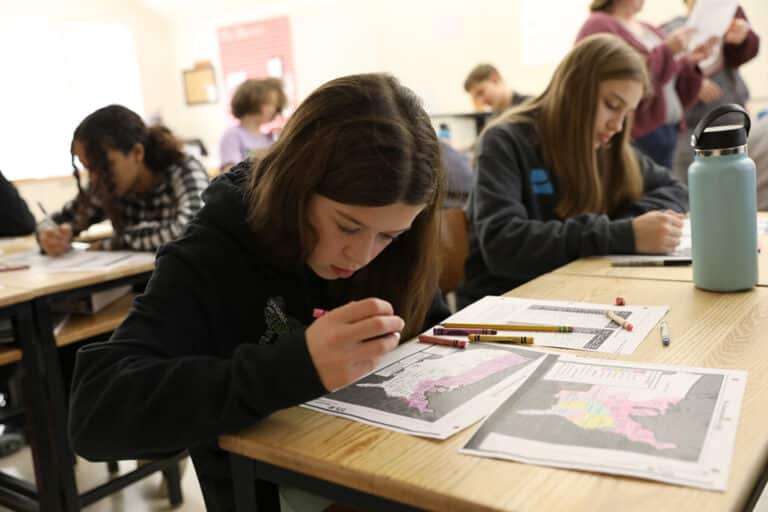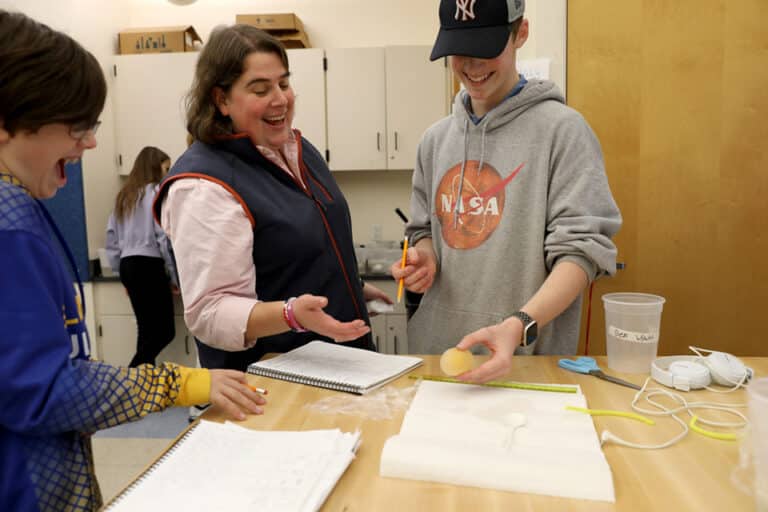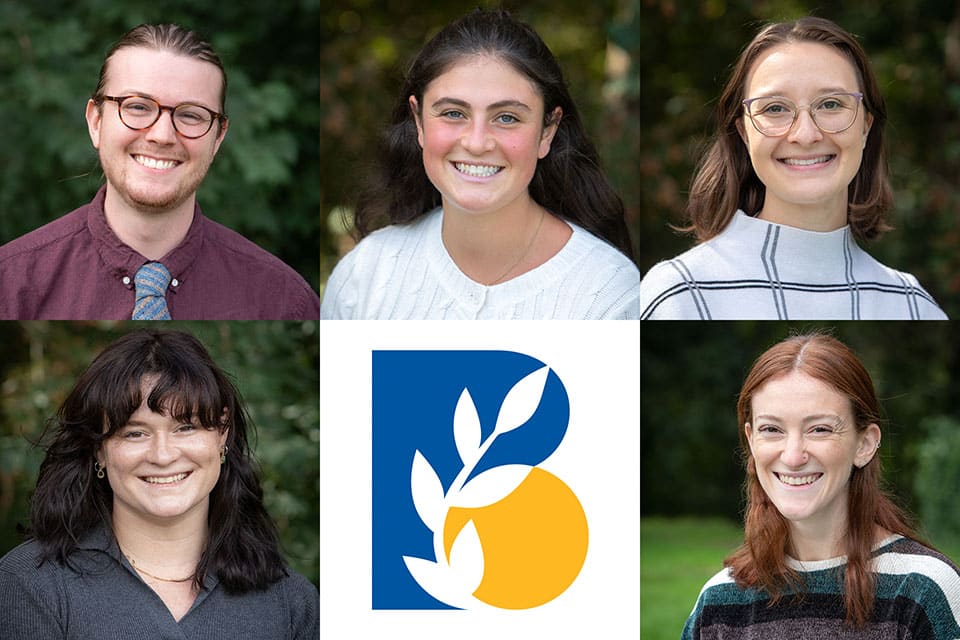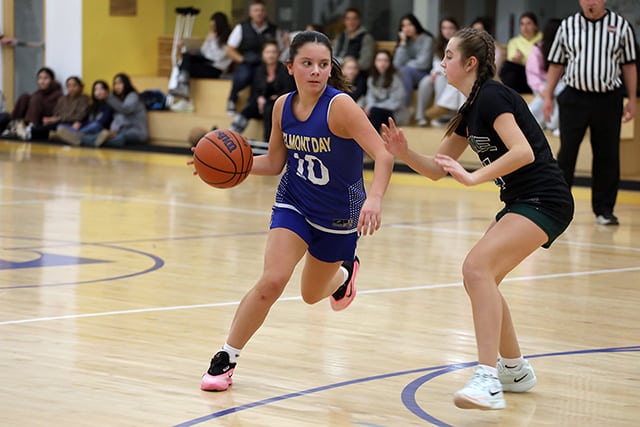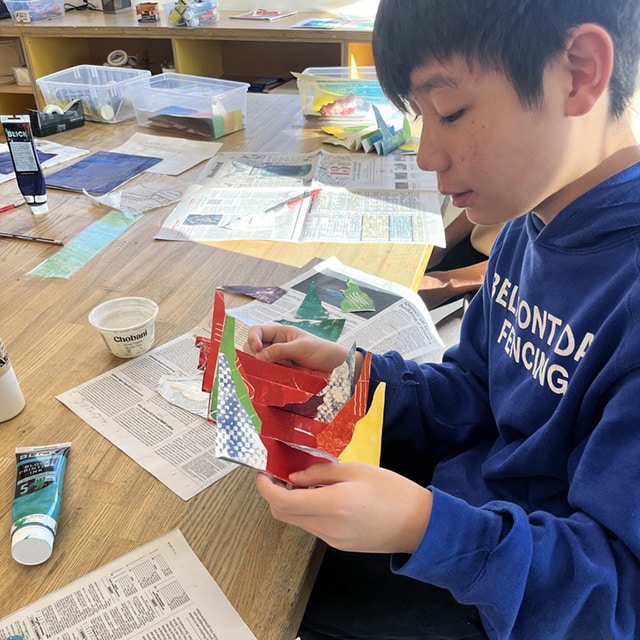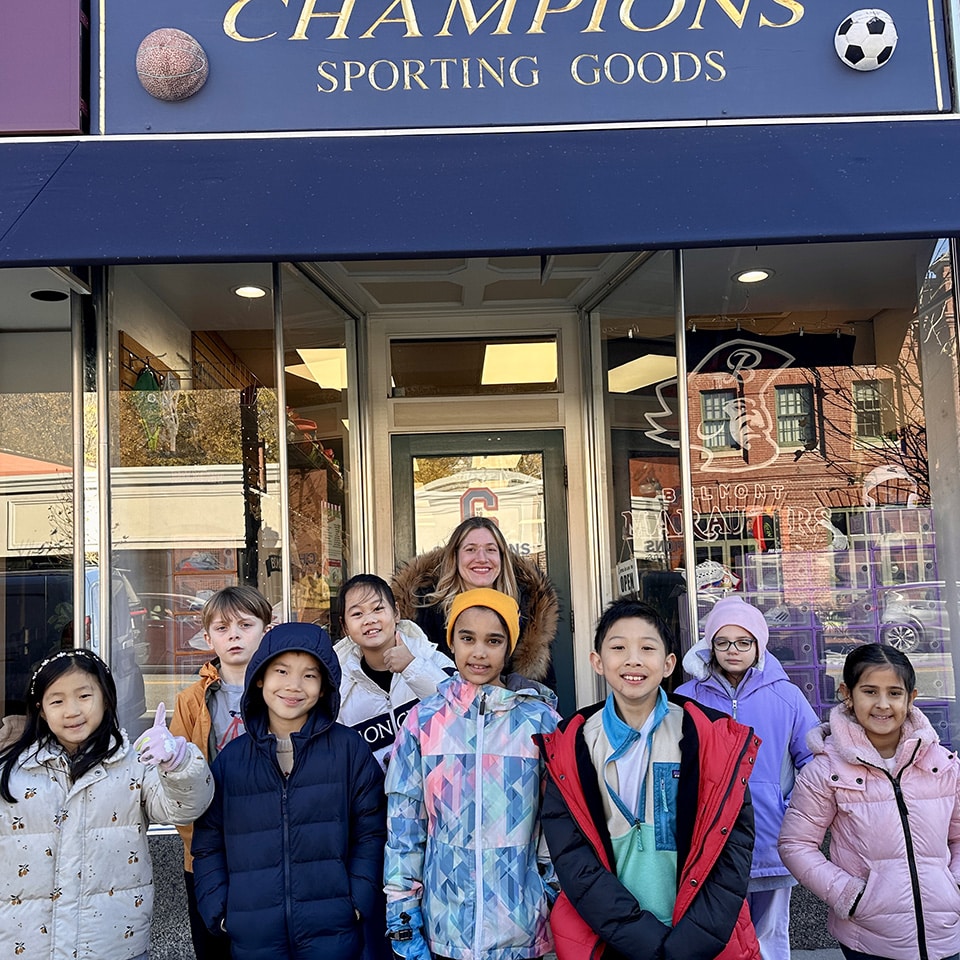Fourth Graders Write and Share Their Stories
In the fourth grade, we have brought out our classroom storytelling stage a bit early this year. It is usually used for our Greek Storytelling Festival, but this year we have added a personal storytelling unit. Our fourth grade storytellers will write three stories over three weeks, and they have a chance each week to share their story on the stage.
Our first prompt was to write about an object that is special or evokes a memory. Stories included a first stuffed animal, a special ring made with a grandmother, and a Latin book turned spell book. This week’s prompt is photos of people who are important to us. Stories have included a dad and his favorite sport, cousins who feel more like sisters, and a grandmother who shows love through her cooking. Our final week will focus on expressing gratitude towards people who have helped or inspired us.
The value in telling our own stories and hearing those of others is that it helps us understand different perspectives, builds community, and helps us feel seen. When we tell stories, we give a part of ourselves to the listener. These stories are challenging to both write and share, and we need to trust our classmates to listen and create a safe place for us to do this work together. One way we create a safe space is by being respectful and kind audience members. Another way is to take the risk ourselves and reciprocate by giving the gift of our own stories. We are looking forward to our final week as all our storytellers take the stage.
Maybe all this talk of storytelling has inspired you. If so, we encourage you to use our prompts to write your own stories and share them with others.
– Lana Holman, fourth grade teacher
Eighth Graders Examine Data Trends In Antebellum America
The eigth graders continued their learning about Antebellum America during social studies class this week. With quantitative data on total population, enslaved population, and cotton production, they mapped the increase in the United States population, territory, and economy between 1830 and 1861. All of this adds to their understanding of growing sectionalism and why the Civil War ultimately began. When we return from winter break, students will learn about the war itself by closely examining a variety of primary sources and applying their knowledge through creative projects.
– Kate Burns, eighth grade social studies teacher
No Yolk! Seventh Grade Science Cracks Into Egg Lab
This fall seventh grade science has been focused on cell biology, specifically cell membranes and the process of osmosis and diffusion. Over the past couple of weeks, students have been conducting the egg lab as an egg is a single cell. Using vinegar students first dissolved the shell of the egg, revealing the cell membrane. Students then chose to submerge the egg into either a saltwater or sugar water solution. Depending on which liquid was chosen, students observed the egg expanding or shrinking. To observe these changes, students measured the mass and circumference of the egg each day throughout the experiment. Students were able to witness the process of diffusion and its implications on a single cell.
– Maggie Small, seventh grade science teacher
